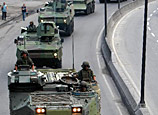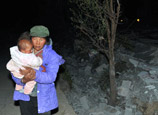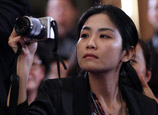
A new regulation prohibiting Beijing's online shopping platforms from selling dairy products may change, the local commercial authority told the Global Times Sunday.
According to a new food safety regulation draft, which was posted on the website of Beijing Administration of Industry and Commerce on February 22 and is set to be effective from April 1, dairy products will no longer be on the list of approved online shopping products.
However, Wu Song, the media officer at the administration, told the Global Times Sunday that they are still at the stage of soliciting public opinion, "and we may change the regulation."
On February 26, Wang Zhanying, an official from the administration's food department, told the Global Times that forbidding online sales of dairy products was aimed at enhancing supervision of milk products and preventing situations such as the scandal over melamine-tainted milk powder in 2008.
Chen Lianfang, a dairy industry analyst with Beijing Orient Agribusiness Consultant, told the Global Times Sunday that if the regulation is carried out, consumers will have to pay more to buy dairy products from normal channels, like supermarkets.
"Without taxes and expenses such as rent, online dairy products are usually much cheaper than those on store shelves," said Chen, noting that he expects the new regulation will not impact dairy producers as a whole.
Because the regulation will only be imposed on Internet companies registered in Beijing, consumers will still be able to buy dairy products online from retailers registered in other places, such as taobao.com.
Beijing-based business-to-consumer retailer 360buy.com told the Global Times Sunday the company is still studying the regulation, and could not give any comment so far.
The press department of Redbaby, a Beijing-based online retailer of mother and baby products, told the Global Times that the company needs time to check on the regulation in detail.
"The proposed regulation aims to ensure dairy products' safety, because normal sales channels include food safety checkups during the process of delivery and packing," said Chen, noting that there may be some risks in online sales.
"But the key problem is that consumers are not confident in domestic products," he said.
A passenger departing from Hong Kong was fined HK$5,000 ($645) Saturday for violating the special administrative region's new two-can purchase limit on powdered formula, effective from Friday.
The limit was introduced to protect supplies for local families, since smugglers have been found to be buying up powdered formula in Hong Kong and reselling it in the mainland.
"For the new regulation, I think what the authorities should do is to improve supervision of domestic dairy producers and lower the heavy taxes on foreign products, to make sure our babies can be safe and healthy," said Zhang Yixin, a 28-year-old mother in Beijing.
Zhang said banning online dairy sales does not make any sense, because she trusts qualified online retailers, and also dairy products in supermarkets are much more expensive than those online.
















 Separate accounts or joint account? How Chinese balance the family books?
Separate accounts or joint account? How Chinese balance the family books?


![]()
